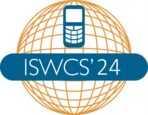Call for Papers
Please read the submission guidelines below before submitting your paper.
Submission Guidelines:
The aim of this symposium is to provide a forum for researchers and technologists to present new ideas and contributions in the form of technical papers, panel discussions, as well as real-world evaluation in the field of wireless communications, networking and signal processing.
This 19th symposium will bring together various wireless communication systems developers to discuss the current status, technical challenges, standards, fundamental issues, and future services and applications.
Accepted and presented papers will be published in the conference proceedings and submitted to IEEE Xplore as well as other abstracting and indexing databases.
Prospective authors are invited to submit high-quality original technical papers (max 6 pages, 10 point font size) for presentation at the conference and publication. Accepted and presented papers will be published in the ISWCS 2024 Proceedings and submitted to IEEE Xplore.
We reserve the right to exclude a paper from distribution after the conference (including its removal from IEEE Xplore) if the paper is not presented at the conference.
Papers are reviewed on the basis that they do not contain plagiarized material and have not been submitted to any other conference at the same time (double submission). These matters are taken very seriously and we will take action against any author who engages in either practice. Follow these links to learn more:
To be published in the ISWCS 2024 proceedings, an author of an accepted paper is required to register for the conference at the full rate and the paper must be presented by an author of that paper at the conference. Exceptions may be granted by the chairs prior to the event.
All papers should be submitted via EDAS, using standard IEEE conference templates. The page length for all submissions is six (6) printed pages in 10 point font and must be written in English. It is the authors’ responsibility to ensure that the author list, the paper title and the abstract of the submitted pdf file is an exact match to the information entered on the EDAS registration page. Please be aware that the author list cannot be changed in the final manuscript.
Topics of Interest:
- Multiple-antenna systems: XL, cell-free, multiuser and distributed MIMO
- Multiple access techniques: NOMA, RSMA and novel approaches
- Machine learning for wireless communications
- Cloud, fog and edge architectures
- Localization and positioning techniques
- Detection, synchronization and parameter estimation
- Interference mitigation methods
- Integrated sensing and communications
- Channel coding and iterative processing
- Intelligent reflective surfaces
- Resource allocation
- Adaptive and array signal processing
- Distributed and federated learning techniques
- Physical-layer security
- Communication protocols
- MmWave and Teraherz communications
- Energy efficiency in wireless communications
- Network design and performance optimization
- Spectrum sensing, sharing, learning and prediction
- Internet of Things and connected vehicles
- Ultra-reliable low latency communication
- In-band full-duplex radio
- Visible light communications
- Satellite and space communications
- Quantum communications
- Molecular communications
- UAV-communications
